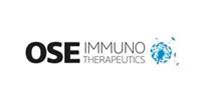eXYSTAT
Biometrics expertise at the service
of clinical research
Since its creation in 2013, eXYSTAT has set itself a clear mission: to support players in the healthcare world in conducting their clinical studies, with an approach based on rigor, listening and innovation.
News


eXYSTAT
Our independent, human-scale organization offers
tailored services in electronic data capture (EDC), data management,
statistics, and methodology.
We support all phases of clinical studies, from protocol design to data
analysis and publication, with a constant focus on quality and transparency.

Our team brings together experienced and complementary profiles, working with a wide range of partners: biotechs, medtechs, pharmaceutical companies, and academic institutions.
Since 2014, we have been accredited under the French Research Tax Credit (Crédit Impôt Recherche) and are actively involved in several innovative projects.
Our work, regularly published in scientific journals and presented at conferences, demonstrates a strong commitment to R&D.

eXYSTAT continues to evolve by adopting new tools, strengthening strategic partnerships, and actively preparing for the challenges of tomorrow: artificial intelligence, real-world data, and connected medical devices.

A conscious model
Unlike large CROs, eXYSTAT has chosen a controlled-growth model to ensure responsiveness, strong commitment, and highly personalized services. This approach is also reflected internally through a company culture built on mutual trust, employee autonomy, and virtually no staff turnover.
Our forward-thinking HR policy promotes long-term engagement and well-being at work — as evidenced by the loyalty of our teams and the implementation of a four-day workweek since 2023. Our model is grounded in five core values: honesty, quality, transparency, simplicity, and friendliness.
.. and a double-digit growth every year
Our team
Experienced and complementary profiles ready to take on your challenges.















Our trainings
- Audits & gap analysis: critical evaluation of current practices with concrete recommendations for optimizing biometrics organization
- Oversight of outsourced projects: expert supervision to ensure quality and regulatory compliance
- Implementation of study risk management plans
- Technology consulting: guidance in selecting appropriate tools (EDC, Statistics, TMF, CTMS…)
- Biometrics team strengthening: support in recruitment, team structure, and skill development
- Quality support: assistance in establishing or improving the quality management system
- Discussions with health authorities (EMA, FDA)
- Support in protocol development
- Critical review of protocols, reports, and scientific publications
- Design and implementation of innovative study designs
- Preparation and execution of analyses
- Strategic guidance for interim analyses
- Active participation in committees and drafting of meeting minutes
- Selection of qualified experts
- Management of associated logistics
- Development of eCRF, IWRS, and ePRO/eCOA solutions using various platforms: Ennov Clinical, Viedoc, and CleanWeb
- Interactive dashboards and data visualization tools
- Data visualization (Power BI)
- Design and validation of documentation: CRF, completion guidelines, validation plan, and data management plan
- Creation of annotated CRFs and metadata following CDISC standards (CDASH & SDTM)
- Conversion of existing databases to CDISC SDTM format
- Import and reconciliation of external data (pharmacovigilance, central reviews, etc.)
- Medical coding and reconciliation of SAEs
- Design and programming of medical listings and patient profiles
- Management of protocol deviations
- Quality control, query management, and ensuring data traceability
- Sample size calculation
- Writing or reviewing the statistical sections of protocols and statistical analysis plans (SAPs)
- Performing or validating statistical analyses using R or SAS
- Writing or reviewing statistical analysis reports
- Creation and validation of ADaM datasets compliant with CDISC standards
- Contribution to the statistical sections of study reports and scientific publications
Our formations
1- Biostatistics and Methodology for Critical Reading of Articles
2- Estimands (ICH E9-Add) – In Theory and Practice
3- Mixed Linear Models – Theory and Application on R and/or SAS
4- Survival Analysis in Clinical Studies
5- Introduction to Bayesian Statistics
6- Introduction to Adaptive Methods
7- Oncology Phase I Trial Methodology
8- Indirect Comparisons – Theory and Application on R and/or SAS
9- Regulatory Biostatistics – Review of EMA/FDA Guidelines
10- Personalized Medicine, Subgroups and Biomarker-Driven Trials
11-Quantitative Decision Making (QDM)
12- Handling Missing Data in Clinical Trials
13- Drug Benefit-Risk Assessment (BRA)
14- Multi-Regional Clinical Trials
15- Use of Historical / External Data in Clinical Trials
16-Causal Inference in Clinical Trials
17- Understanding Clinical Data Management: from data collection to submission
18- Demystifying CDISC: a practical introduction to CDASH and SDTM standards
Our customers share their experiences
-

"I would like to express my complete satisfaction with our collaboration with eXYSTAT. Since the beginning of our partnership, their responsiveness and ability to respond quickly and effectively to our needs have been remarkable. Their high level of competence and expertise in their field are undeniable assets that have greatly contributed to the success of our joint projects.
Beyond their technical know-how, I particularly appreciate their professionalism, their sense of ethics, and their human qualities. They are attentive, flexible, and truly collaborative, which makes our daily exchanges simple, smooth, and enjoyable. Working with them is not only efficient, but also very rewarding on a human level.
I highly recommend eXYSTAT to any company looking for a reliable, competent and committed partner in the field of data management and biostatistics."
Magali TAIEL, MD
Chief Medical Officer -

"The data managers and statisticians at Exystat have combined their expertise in data management and statistics and support us both in conducting our trials and analysing the data!
With high-quality advice tailored to our needs and the challenges of academic research in France and internationally, eXYSTAT is a true partner that supports us in our development and improvement."
Sébastien ARMANET
ARCAGY-GINECO -

"We have had the pleasure of working with eXYSTAT since Cureety's inception; we entrusted the company with the clinical evaluation plan for our remote monitoring medical device software. Five clinical studies have already been completed, and the results of these studies have enabled us to obtain reimbursement for our medical device from the French national health insurance system. eXYSTAT's expertise in methodology and biometrics has been instrumental in robustly evaluating the performance and organisational and clinical benefits of our digital medical device; we highly recommend eXYSTAT!"
François-Guirec CHAMPOISEAU
CEO & Co-founder
Cureety -

Why eXYSTAT?
Because... you enjoy working in project mode.
Because... you enjoy working in a relaxed atmosphere.
Because... you enjoy having fun.Bérangère Vasseur Demarcy - Chief Medical Officer Immuno-Oncology
OSE Immunotherapeutics
